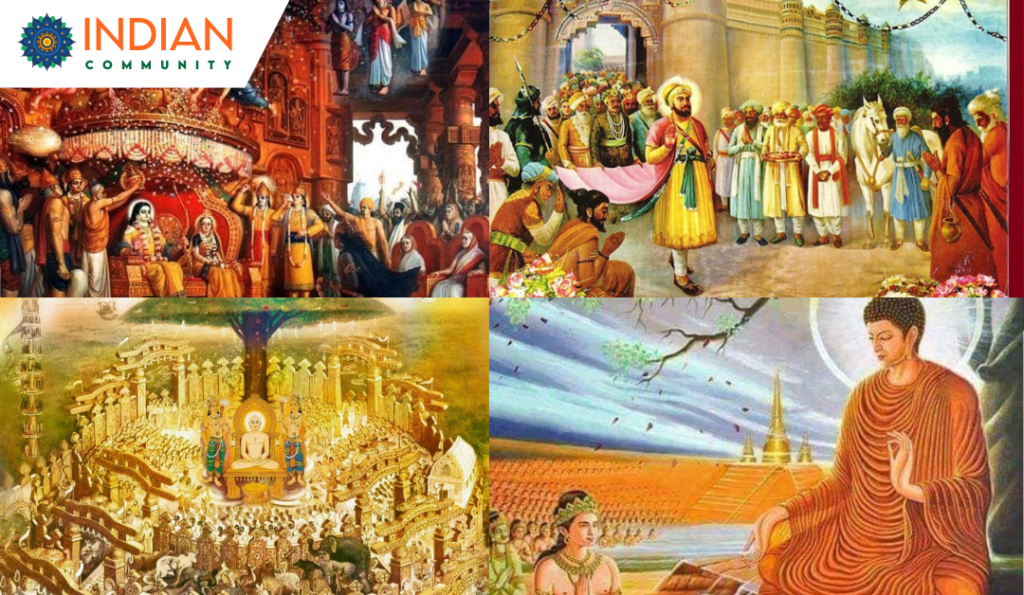Diwali, known as the Festival of Lights, is one of the most widely celebrated festivals in India and by Indian communities around the world. But beyond the vibrant fireworks, the rows of twinkling oil lamps, and the sweet treats, Diwali carries a deep and profound meaning that resonates across various cultures, religions, and traditions.
The Spiritual Significance of Diwali
At its core, Diwali symbolizes the victory of light over darkness, good over evil, and knowledge over ignorance. This timeless theme is reflected in the various legends and stories associated with the festival across different religions:
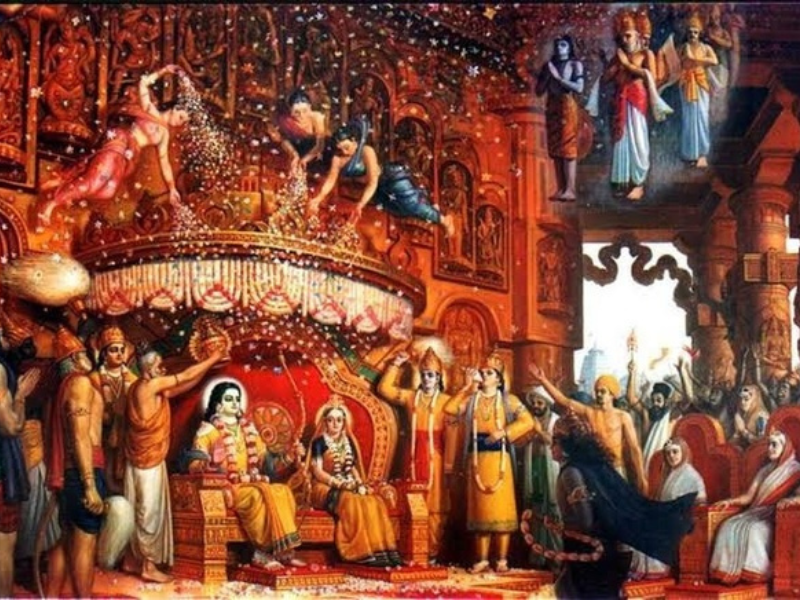
Hinduism: For Hindus, Diwali commemorates Lord Rama’s return to Ayodhya after 14 years of exile and his triumphant victory over the demon king Ravana. The people of Ayodhya lit oil lamps (diyas) to celebrate his return, marking the beginning of Diwali as a festival of light. Additionally, Diwali is dedicated to Goddess Lakshmi, the goddess of wealth and prosperity. On this day, homes are cleaned and illuminated to invite her blessings.
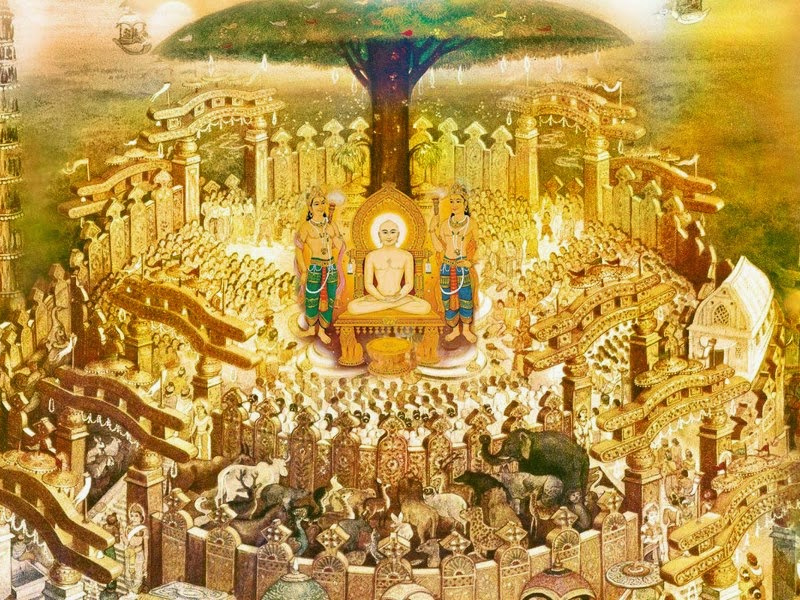
Jainism: In Jainism, Diwali holds profound spiritual importance, as it commemorates the nirvana, or the liberation and ultimate spiritual awakening, of Lord Mahavira, the 24th Tirthankara. According to Jain tradition, Lord Mahavira attained nirvana on this day in 527 BCE, at the age of 72. This event symbolizes the triumph of the soul over worldly attachments and the cycle of rebirth.
For Jains, Diwali is not just a festival of lights, but also a time of deep reflection, self-discipline, and spiritual renewal. It encourages followers to meditate on the teachings of Lord Mahavira, which emphasize non-violence, truth, and renunciation. The festival is an opportunity to cultivate inner purity, practice forgiveness, and reaffirm the commitment to living a life guided by truth and ethical principles. Lighting lamps during Diwali symbolizes the dispelling of ignorance and the illumination of knowledge, guiding the soul towards liberation.
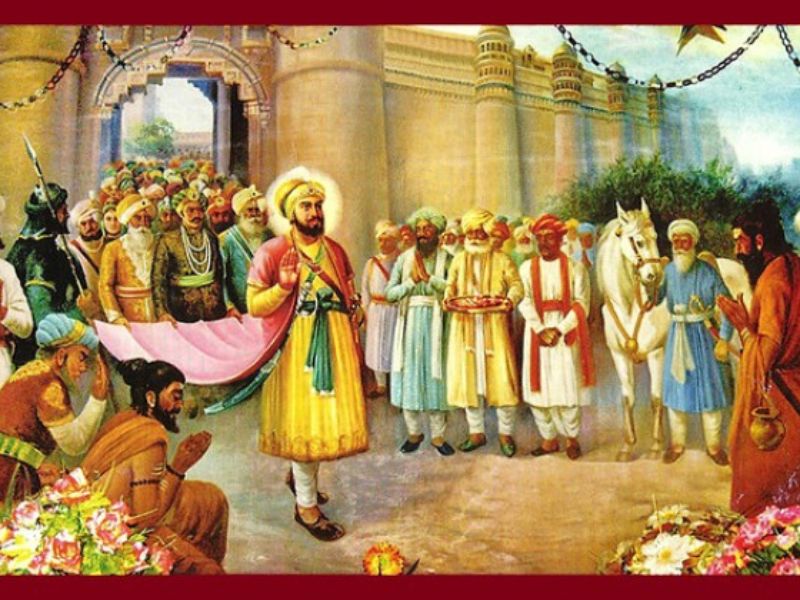
Sikhism: For Sikhs, the day of Diwali coincides with the celebration of Bandi Chhor Divas, a significant event in Sikh history. Bandi Chhor Divas, which translates to “Day of Liberation,” commemorates the release of the sixth Sikh Guru, Guru Hargobind Ji, from the imprisonment of the Mughal emperor Jahangir in 1619. The story holds great importance in the Sikh faith, as it exemplifies the values of freedom, justice, and righteousness.
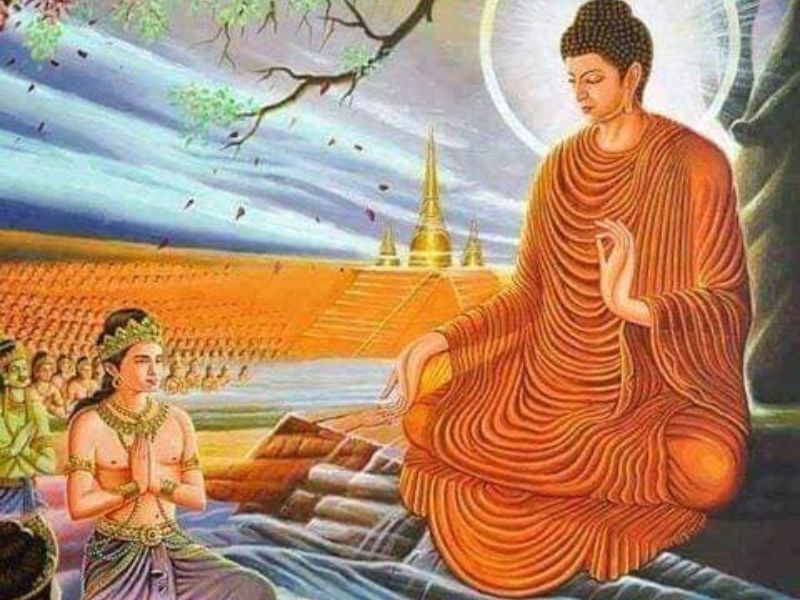
Buddhism: While Diwali is primarily associated with Hinduism, it also holds significance for some Buddhists, particularly the Newar Buddhists of Nepal. For them, Diwali is a time to honor the historic event of Emperor Ashoka’s conversion to Buddhism. Emperor Ashoka, one of the greatest rulers of ancient India, was initially known for his military conquests and expansion of the Mauryan Empire. However, after witnessing the immense suffering caused by his campaigns, particularly the devastating Kalinga War, he experienced deep remorse and a profound transformation.
Diwali’s Universal Message
While Diwali’s stories and traditions vary, the underlying message remains consistent: the triumph of light, goodness, and hope. The festival serves as a reminder that even in the darkest times, light will always prevail. This message transcends religious boundaries, making Diwali a universal celebration of life’s most fundamental values.
The Cultural and Social Meaning of Diwali
Diwali is more than a religious festival; it is a cultural event that brings people together. It is a time for family gatherings, sharing meals, exchanging gifts, and spreading joy. The lighting of diyas and bursting of fireworks symbolize the dispelling of negativity and the welcoming of new beginnings.
In many parts of India, Diwali also marks the start of the new financial year, with businesses opening fresh accounts and people buying new clothes and household items. The festival is seen as an auspicious time to begin new ventures, reinforcing its association with prosperity and growth.
Diwali’s Modern Relevance
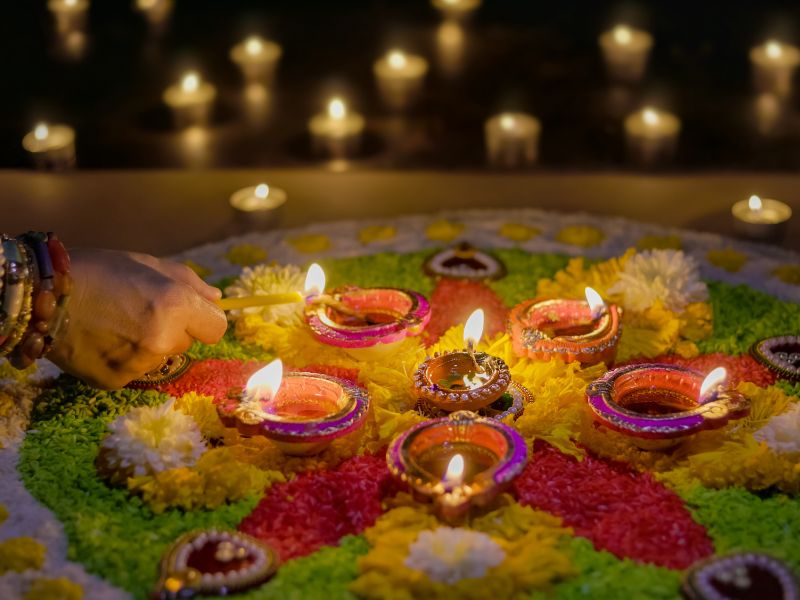
In the hustle and bustle of today’s fast-paced world, the timeless message of Diwali has gained even greater significance. As life becomes increasingly hectic, the festival serves as a much-needed reminder to slow down, pause, and take a moment to reflect on the things that truly matter. Diwali encourages us to step back from our busy schedules, reconnect with our loved ones, and cherish the bonds that hold us together. It is a time to express gratitude for the relationships we often take for granted and to strengthen these connections with gestures of love and care.
Moreover, Diwali invites us to look inward and ignite the inner light within ourselves. This light symbolizes the virtues of positivity, kindness, and compassion that we can bring into the world. By nurturing this inner light, we become beacons of hope and positivity, spreading warmth and goodwill in our communities. In a world that often feels divided and fraught with challenges, the festival encourages us to be the source of light that dispels negativity and fosters an environment of understanding and cooperation.
The meaning of Diwali extends far beyond its rituals and festivities. It is a celebration of the values that make us human: love, kindness, resilience, and hope. Whether you are lighting a diya, offering prayers, or simply spending time with family, Diwali invites us all to embrace the light within and around us, making the world a brighter and better place.
As you celebrate Diwali this year, take a moment to reflect on its deeper meaning and let its light guide you towards a future filled with peace, joy, and prosperity.

